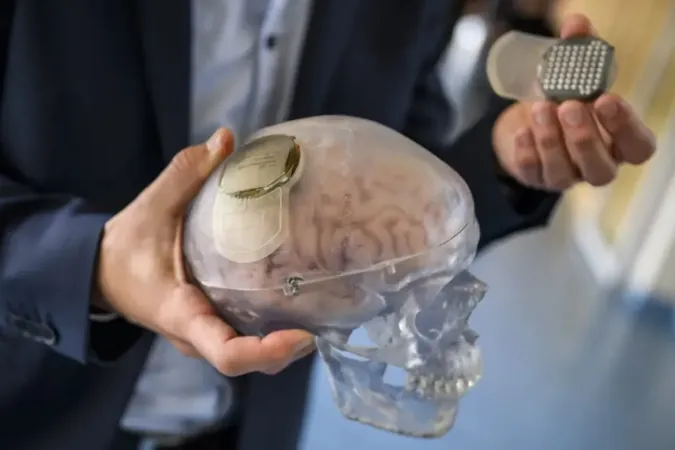
Groundbreaking Research: Chinese Scientists Revive Brain Activity After 50 Minutes of Death!
2024-10-27
Author: Wei
Groundbreaking Research: Chinese Scientists Revive Brain Activity After 50 Minutes of Death!
In a stunning breakthrough that could reshape our understanding of brain death, a team of Chinese scientists led by Xiaoshun He has made significant strides in reviving brain activity even after a prolonged period of cessation. This groundbreaking research, published in the prestigious journal EMBO Molecular Medicine, details the remarkable resuscitation of a pig's brain nearly an hour after blood circulation had stopped.
Years ago, scientists raised eyebrows by demonstrating the revival of brain functions in pigs several hours post-mortem, pushing the boundaries of what we understand about neurological death. Now, this new study expands on that premise. The experiment was conducted on a group of 17 Tibetan pigs.
At the heart of this research is the concept of ischemia—a condition caused by the heart’s failure to pump blood, which leads to a critical lack of oxygen and essential nutrients for the brain. However, this landmark study introduces a novel twist: the involvement of the liver in the revival process.
Incredibly, the results have shown that when the liver is activated alongside the brain, it plays a pivotal role in restoring electrical activity. In contrast, brains left without the liver’s assistance deteriorated swiftly, exhibiting significant inflammation, cellular damage, and diminished brain waves. The escorted brains, on the other hand, displayed markedly less inflammation, healthier neurons, and even the restoration of brain wave patterns.
This liver-bolstered recovery suggests that the organ’s regulatory functions might mitigate brain inflammation and supply an alternative energy source, offering new possibilities for future research into post-mortem brain revival.
As the scientific community grapples with the implications of these findings, it raises profound questions about the nature of life and death, the potential for medical advancements in critical care, and the ethical dilemmas inherent in such transformative research. What does this mean for life-saving procedures in future medicine? Could we be on the brink of redefining irreversible brain death?
Stay tuned as this thrilling story unfolds—science has never been more exciting, and the potential implications could impact not only how we perceive death but also how we approach resuscitation and recovery strategies in the years to come!



 Brasil (PT)
Brasil (PT)
 Canada (EN)
Canada (EN)
 Chile (ES)
Chile (ES)
 España (ES)
España (ES)
 France (FR)
France (FR)
 Hong Kong (EN)
Hong Kong (EN)
 Italia (IT)
Italia (IT)
 日本 (JA)
日本 (JA)
 Magyarország (HU)
Magyarország (HU)
 Norge (NO)
Norge (NO)
 Polska (PL)
Polska (PL)
 Schweiz (DE)
Schweiz (DE)
 Singapore (EN)
Singapore (EN)
 Sverige (SV)
Sverige (SV)
 Suomi (FI)
Suomi (FI)
 Türkiye (TR)
Türkiye (TR)